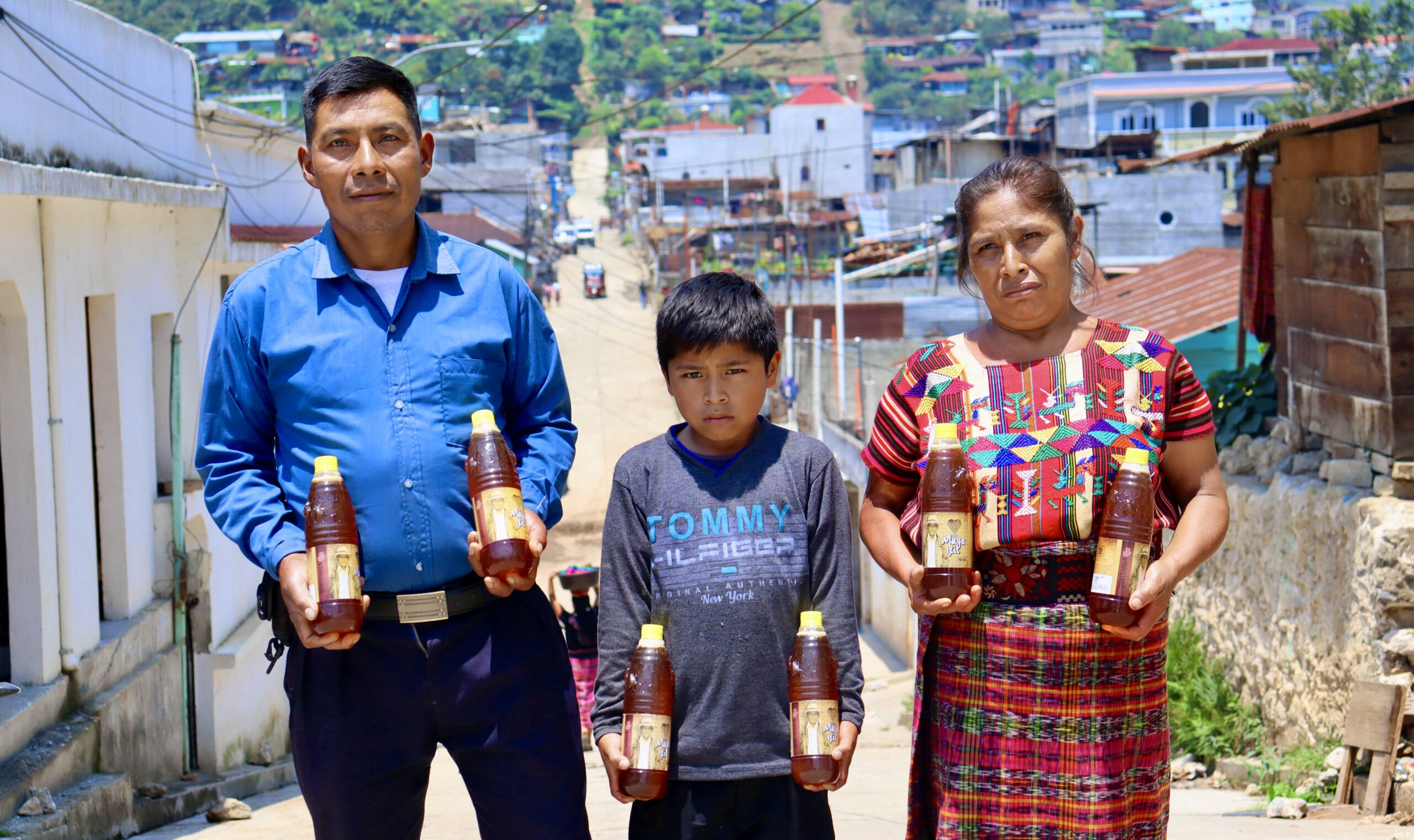Beekeeping Tutorials
Facing the Thin Months: Coffee Farmers in Latin America Endure the Drought
As we approach the middle of the year, coffee-farming communities in Latin America brace themselves for the "thin months"—a period of seasonal hunger that strikes annually between harvests. This
A Sweet Solution for Economic Empowerment in Guatemala
In the lush coffeelands of Guatemala, the buzz of bees is becoming a sound of economic resilience and growth. Food 4 Farmers and our partners at the ACODIHUE coffee
Why Are Bees Good for Coffee?
Bees are good for coffee producers, their families, and communities in coffee-growing regions. Coffee-growing regions are good sites for honey bees, as plant diversity within the coffee farm offer
The Basics of Bees
Knowledge about bee biology is key to successful beekeeping. A bee colony has three types of bees: two female castes (a single queen and many workers), and a male bee
Bee Products for Income
Honey bees can be an important source of nutritional or medicinal products, and/or income. Honey is the main product from honey bee keeping, providing dietary carbohydrate (sugar) and a variety
The Bee Market
Bees maintained with modern culture methods in manmade hives readily produce harvestable amounts of honey and other bee products. Beekeepers looking to establish and build local markets for their products
Bee Tools and Equipment
Basic equipment for commercial beekeeping consists of wooden boxes to house the bee colony, with a special base giving bees an area for entry and exit. Inside these boxes, wooden
The Cycle of the Beehive
Bee colony life history is an annual cycle that syncs with bee forage resources. During the rainy season, colonies are smallest; at this time, beekeepers may supplement with sugar feeding.
Bee Swarms
Swarming is a natural behavior of honey bees. Bees swarm as they outgrow their existing homesite. A swarm consists of a single queen and a large population of workers who
Bee Stings
Bees sting to defend their nest and themselves when disturbed. Beekeeping requires perseverance — and tolerance to stings. Using personal protective equipment and a smoker will help, but beekeepers may
Bee Pests and Diseases
Bee and nest pests, along with disease-causing pathogens, seek bee products such as honey and beeswax as a resource. Food reserves, the bees themselves and their nests, all attract a


